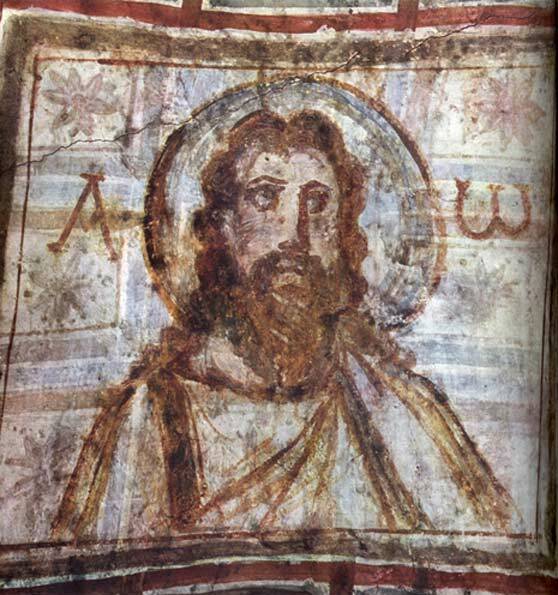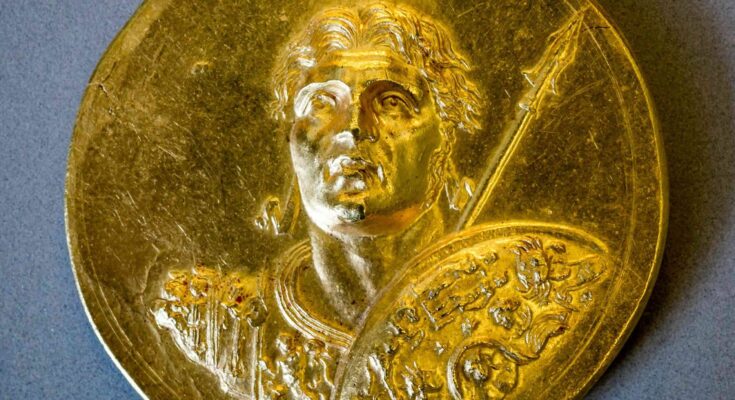The impact of Alexander the Great on the development of Christianity has intrigued scholars for generations. While their lives and legacies differ significantly, many argue that Alexander set the stage for Jesus’s message. But did Alexander the Great really pave the way for Jesus?
Alexander’s globalism and syncretism
Alexander the Great’s vision extended beyond mere conquest. His goal was to create a unified world where different cultures, ideas, and religions could coexist and interact. This globalism, combined with his promotion of syncretism—the blending of diverse traditions—shaped the Hellenistic world profoundly.
By encouraging the fusion of Greek and Eastern ideas, Alexander laid the groundwork for an environment where diverse beliefs could be integrated.
The role of cultural exchange in spreading Jewish ideas
N.T. Wright, eminent theologian, underscores how this environment of cultural exchange was crucial for spreading new ideas, including those of Judaism. He notes that the Hellenization of the ancient Near East under Alexander the Great and his successors provided the first great opportunity for the spread of a message across a largely common cultural and linguistic landscape.
This syncretic environment made it easier for Jewish ideas, which later formed the foundation of Christianity, to be understood and accepted in the broader Greco-Roman context. The common intellectual ground established by Alexander’s policies allowed for a smoother integration of Jewish monotheism into a world accustomed to diverse religious practices.
Historical interpretations of global influence
W.W. Tarn also discusses the revolutionary impact of Alexander’s global vision. Tarn describes Alexander as the pioneer of one of the supreme revolutions in the world’s outlook. His conquests were not just about expanding territory but about creating a world where different cultures could interact and merge. This internationalism laid the foundation for a more interconnected world, where Jewish ideas could find a place within the broader religious landscape.
Ory Amitay, in his work From Alexander to Jesus, explores how Alexander’s promotion of syncretism and globalism made it easier for early Christians to present their message. Amitay argues that the cultural environment shaped by Alexander encouraged for the blending of Easter and Greek ideas. This blending was crucial in the early stages of Christianity, as it enabled Jewish monotheism to resonate with the broader, more cosmopolitan audience of the Roman Empire.
The spread of Koine Greek and the gospels

One of Alexander’s most enduring legacies was the spread of Koine Greek across his empire. This common language facilitated communication across diverse regions and played a crucial role in the spread of Christian texts. The New Testament, written in Koine Greek, was accessible to a broad audience throughout the Roman Empire. This accessibility significantly aided the spread of Christianity.
The importance of linguistic unity is underscored by N.T. Wright, who notes that “the world into which Jesus was born was one in which the Greek language, ideas, and culture had spread far and wide.” The widespread use of Koine Greek allowed the apostles and early Christians to communicate the gospel more effectively. This linguistic unity enabled them to reach diverse populations across the empire.
Linguistic legacy and cultural impact
W.W. Tarn emphasizes the significance of this linguistic legacy. He points out that the spread of Greek as a lingua franca under Alexander created the conditions necessary for the rapid dissemination of ideas, including the Christian gospel. Without this common language, the message of Christianity might have struggled to reach the far corners of the Roman Empire as effectively as it did.
Ory Amitay adds that the use of Koine Greek was not just a practical tool but also a cultural one. The spread of the Greek language and culture created a shared intellectual framework. This framework allowed for the blending of different religious and philosophical ideas, which Christianity could engage with and transform as it spread.
A stark contrast: The Slayer and the Savior
Despite similarities in the acceptance of global ideas and the linguistic foundation for spreading the gospel, Alexander and Jesus represent starkly contrasting figures. Alexander was a conqueror known for his military prowess and ambition to create a vast empire. His leadership was marked by force, domination, and the imposition of Greek culture on conquered peoples.
In contrast, Jesus’ mission was to win hearts rather than lands. His teachings emphasized humility, love, and service to others. Whereas Alexander shed the blood of others to build his empire, Jesus shed his own blood to save humanity. Alexander’s victories were of this world, celebrated with the spoils of war and the glory of conquest. Jesus, on the other hand, spoke of a kingdom not of this world, where the last shall be first and the meek shall inherit the earth.
Did Alexander the Great pave the way for Jesus?
Alexander the Great’s legacy significantly influenced the world in which Christianity emerged. His promotion of globalism, internationalism, and syncretism provided a cultural and intellectual foundation crucial for the acceptance of Jewish ideas and the spread of the Christian gospel. Yet, despite these contributions, Jesus’ message starkly contrasted to Alexander’s conquests. While Alexander’s legacy was one of power, Jesus was defined by humility and sacrifice. Even though they were radically opposed, the world Alexander shaped set the stage for Jesus.



